Coconut oil is extremely versatile health and beauty product. People use it for everything from cooking and cleansing to moisturizing the skin and removing makeup. Coconut oil can help hair health in many ways, so many people use coconut oil on their hair regularly. When used properly, coconut oil can be beneficial for some hair and is safe to use on most hair types. Next, let’s take a look at how coconut oil is used and whether it is good or bad for our hair.
What’s In Coconut Oil?
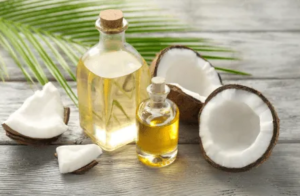
Coconut oil is extracted from coconut and retains many of its beneficial components. Coconut oil has a mild and sweet taste and has natural properties that are beneficial to the skin. Dermatologists often recommend coconut oil for its moisturizing properties and certain anti-aging properties.
1. Fat content
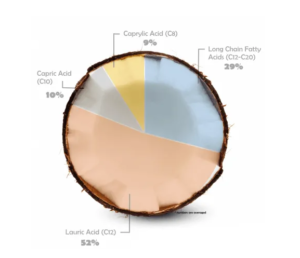
Coconut oil does not contain high concentrations of vitamins or minerals. It is 100% fat, 80% to 90% of which is saturated fat. This type of fat is a “bad” fat for your diet, but it gives coconut oil a firmness that other oils don’t. Coconut oil is solid at room temperature and starts to melt around 78 degrees Fahrenheit.
2. Fatty acids
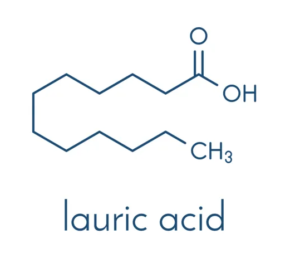
Lauric acid makes up 47% of the fatty acids in coconut oil. When ingested, lauric acid can cause an increase in bad cholesterol levels in the blood. When applied to your skin, lauric acid has antibacterial properties. If you have open wounds, coconut oil can help kill bacteria and prevent them from causing further damage.
Benefits Of Coconut Oil For Your Hair
Hair is made of proteins, especially keratin. Dyes, bleach, shampoos, and styling products can destroy this protein, leaving hair dull and brittle. At this point, coconut oil is the way to go!
1. Coconut oil for hair growth

Yes, coconut oil can promote hair growth. Coconut oil can help your hair become healthier, thicker, and longer. The vitamins and fatty acids in coconut oil help nourish the scalp and penetrate the cuticle of the hair. About a weekly or bi-weekly treatment mask lasting 5 to 10 minutes should do the trick.
Beyond that, incorporating coconut oil into your routine creates the best environment for hair growth. The vitamins and essential fatty acids also help to remove the sebum that builds up in the hair follicles, thereby accelerating your hair growth.
2. Coconut oil for scalp health
If you’re dealing with dandruff, scalp irritation, or dry scalp, coconut oil can also help with that. According to scientific research, coconut oil can relieve symptoms of scalp irritation, including scalp psoriasis and seborrheic dermatitis (dandruff).

If you want to fight dandruff, apply coconut oil to your scalp for about five minutes, then wash it off with shampoo. Users should repeat this procedure until dandruff begins to subside. Plus, massaging coconut oil into your scalp can improve the overall health of your scalp, actively reducing its flaking.
Coconut oil can also help if you’re battling a fungal infection. A recent study in the International Journal of Microbiological Research found that coconut oil can help fight and treat fungal infections.
3. Coconut oil for damaged hair
It’s no secret that chemicals, heat treatments, and pollution can dry out and damage your hair. In this case, coconut oil is the solution. Coconut oil provides a barrier that protects the scalp and hair and stops irritants and bacteria from causing damage.

If your hair is feeling a little dry or damaged, coconut oil is a great pre-shampoo treatment to keep the shampoo from stripping all the oil from the hair, we sincerely recommend that users apply coconut oil before going through their shampoo routine The oil is massaged from the roots to the ends.
If you enjoy spending time outdoors, we recommend applying coconut oil before sun exposure. Because coconut oil is considered a natural SPF, it can protect your hair and skin from harmful sun exposure.
On the other hand, you can protect your hair from bleach damage by incorporating it into your pre-color routine.
Possible Disadvantages Of Coconut Oil
1. Limitation of validity
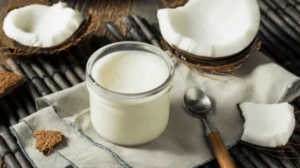
If your scalp condition is more severe, you may need a medicated shampoo for treatment. Coconut oil has limitations as a shampoo treatment because it has no active ingredients. If your symptoms continue to not improve, consult your doctor.
2. Potential allergic reaction
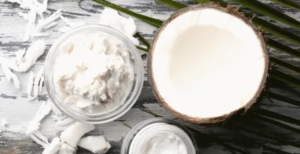
While coconut oil is safe for hair and skin, there is always the possibility of allergic reactions. If you apply coconut oil to your scalp or hair and notice signs of an allergic reaction, discontinue use and seek immediate medical attention.
Tips For Using Coconut Oil In Hair Care
Coconut oil may benefit all hair types. It is especially suitable for dry, damaged, or color-treated hair. Next, let’s see how to get the most out of coconut oil in your hair care regimen:
1. Heat the oil first

It may be easier to apply coconut oil if you warm it up before applying it to your hair. Put a teaspoon of oil in a bowl, then place it in a container with some hot water. The coconut oil will turn into a liquid in a few minutes. You can also place the solidified oil in the palm of your hand and rub it with your hands to melt it. Avoid heating oil in the microwave to prevent it from becoming dangerously high.
2. Make a blend

Add a few drops of essential oils like lavender or peppermint to coconut oil for extra aromatherapy benefits. You can also mix coconut oil with natural hair-nourishing ingredients like yogurt, honey, or avocado.
3. Use at night
It takes time for hair to absorb coconut oil, so if you use coconut oil in the morning, your hair will look and feel greasy. Instead, use it at night, then shampoo in the morning.
4. Apply the oil gently
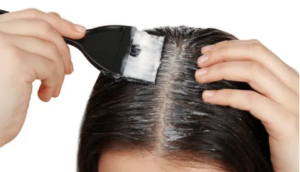
Even though it is relatively light, coconut oil can make hair heavy if used too much. To avoid build-up, start with a small amount—no more than a teaspoon—and gently massage your hair, starting in the middle and continuing to the ends. If you have thick hair, you can use it a little more.
5. Shampoo twice

When it comes time to remove coconut oil from your hair, keep in mind that a second shampoo may be necessary to remove the smoothness.
6. Rotate the oil
If you have thick hair, using coconut with other oils like argan, avocado, or castor oil may help.
Conclusion

After reading this, you should understand, right? Benefits of coconut oil and precautions for its use. If you found this article helpful, please share it with those around you. If you have any questions or are interested in this topic, you can leave a comment below the article, we sincerely welcome you!



